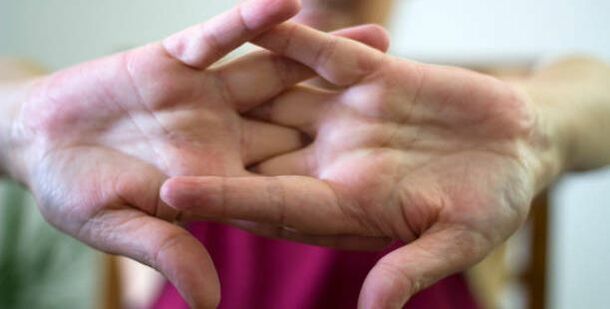Are You Harming Yourself When You Crack Joints?An estimated 25-54% of people crack their knuckles on a daily basis. To some, waking up and stretching, cracking and popping their knuckles, back, neck, and other body parts just feels good and comes naturally. However, you’ve perhaps heard people claim that cracking your joints can cause arthritis. It comes off as an old wives' tale, but does it actually hold any weight? Does cracking your knuckles (or other body parts) actually cause long-term damage? If you’re a chronic knuckle popper, should you stop? Let’s investigate these claims and look at some helpful hints to stop cracking your joints. What Happens When You Crack Your Knuckles?First and foremost, it's important to understand what causes the popping sounds when you crack your joints -- a mystery that still isn't 100% solved, but there are a couple of leading theories. The first one involves synovial fluid bubbles. Synovial fluid is a viscous fluid found in synovial joints, which are the most movable types, such as the shoulders, knees, wrists, etc. When a joint is pulled, gas present inside the joint is released, forming gas bubbles within the synovial fluid. The presence of the bubbles and the sudden change of pressure causes them to burst, which in turn causes the popping sound you hear when you crack your knuckles. Another, more probable, theory involves something called cavitation. This is when cavities form inside a joint when pulled, bent, twisted, or otherwise manipulated. These cavities are formed within the synovial fluid and then rapidly collapse, creating the sharp audible popping sound. Does Cracking Joints Cause Arthritis?The claim that cracking your knuckles leads to arthritis is not supported by any scientific evidence. However, a 2011 study found that knuckle crackers are more likely to have chronic hand swelling and lower grip strength than those who do not habitually crack their knuckles. That being said, the study also failed to acknowledge that since knuckle cracking is often used as a stress reliever, habitual knuckle crackers were also more likely to take part in other activities such as manual labor, smoking, nail biting, and alcohol consumption which may be the main factors in swollen hands and grip strength. This means that cracking your knuckles is correlated with hand issues but is not necessarily the cause. Therefore, there is no definitive proof that cracking your knuckles will give you arthritis. How to Stop Cracking Your KnucklesEven though cracking your knuckles may not give you arthritis, it can still have other adverse effects. For example, it can cause joint swelling, negatively impact hand strength, or could be a side effect of anxiety. But most of all, it probably annoys the people around you. So if you look at it from a behavioral perspective, you may still want to try quitting cracking your joints. Here's how.
When to See a Chiropractor for Snapping or Popping JointsWhile cracking your knuckles is mostly harmless, other things can cause a snapping or popping sound, such as when tendons snap over joints. For instance, if you feel or hear your shoulder popping repeatedly as you lift weights, it could indicate that the muscles are tight and some extra stretching may be needed before you begin your workout. If the snapping becomes painful and radiates to other body parts, cease strenuous activity immediately, take a warm shower to loosen the muscles, and visit a chiropractor. In addition, painful popping in the joints could indicate a torn muscle or other injuries. Again, your chiropractor can help heal it to get you back on track. For any further questions or to schedule a consultation, contact Petrak Family Chiropractic Center today. We'll help develop a personalized treatment regimen to help you become more limber, coordinated, and balanced.
0 Comments
Your comment will be posted after it is approved.
Leave a Reply. |



